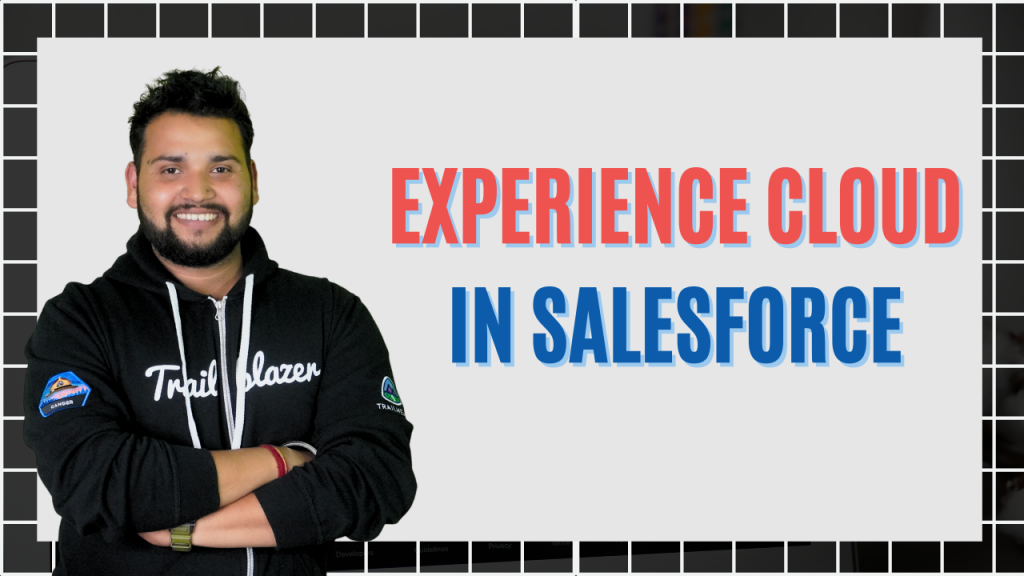Building personalized experiences for customers is the prime motive for any business. We all know that implementing a personalized setup is quite tedious for many of them and that is the point where Salesforce Experience Cloud walks in for rescue.
Certainly, the question would have popped up in your head by now; what exactly is Salesforce Experience Cloud?
So let’s dive into our blog to find out what Experience Cloud is all about. We will even learn how it benefits businesses around.
What is Experience Cloud in Salesforce?
Salesforce Experience Cloud which was also known as Community Cloud is one of the many CRM products which has been launched by Salesforce.
Experience cloud is something that easily integrates with the existing Salesforce CRM be it your Sales or Service Cloud.
One might question at this point that; if we already have a well-functioning CRM cloud existing in the functionality sphere then what is the need for an experience cloud?
For instance, an organization has its business well set over the CRM, and all its employees are using the cloud efficiently. They often deal with external users or agents for various operations.
A business can’t provide access to the CRM directly to external users as they aren’t required to access all the data and functionality of the CRM. This is the point where the experience cloud walks in to help.
Experience Cloud platform helps us to design sites and provide better service by engaging with external channel partners, agents, or brokers.
An experienced site is designed above the Salesforce platform so we can integrate other applications supported by Salesforce as well.
For example, if a business decides to design an experience site for their external agents then they can even integrate Tableau.
This will allow the external agents to track and play around the data.
They will even perform better by getting help from the statistics obtained. Along with that it even allows users to access and share data over a single platform even though either the user is external or internal.
Want to Learn Salesforce Flows? Checkout our Salesforce Flow Course
The Architecture of Experience Cloud
Salesforce Experience Cloud consists of three categories over which users can build communities for connecting their users. The three types are:
Customer Community: This is mostly designed as a self-service platform. Here customers of certain businesses can connect, seek support, or provide feedback as per their needs.
It allows businesses to share knowledge articles with customers for their pieces of training. Even customers are allowed to share their data as per their needs.

Partner Community: This mostly works in business-to-business setups. It allows 2 separate businesses to deal with their services or products more easily due to the feasibility of sharing data with external users of the platform.
It provides high security towards both ends which helps businesses build trust in one another
Integrated Employee Community: This is mostly implemented within an organization between teams like HR-IT, Finance-HR, etc; for collaborating and making data sharing easier.
Internally even customers deal with huge files of knowledge articles which requires seamless transactions for enhanced functionality and productivity
Features of Experience Cloud
Now it’s time to know why experience cloud is beneficial to us by going through its features.
We came across a few features at the start but let’s dive deeper into those and the other features that Experience Cloud provides to its customers.
1. Customer-first digital experience in clicks
Experience Cloud development doesn’t require its users to sit and write through tedious codes. We can easily generate interactive sites, apps, and portals using a no-code builder with just a few clicks.
2. Tailored experiences for all users
Experience Cloud even aligns with Salesforce’s important motive of providing a personalized experience to businesses and its users by allowing them to design their sites as per their taste using the available pre-built themes and letting them publish their content around their target audience.
3. All device friendly
Experience sites are supported well over mobile devices as well irrespective of the motive they are built for.
Be it a support portal or a knowledge base every experience site is fully responsive all thanks to the existence of Salesforce mobile SDK which makes it easier to have sites pulled to mobile as well.
4. Enhanced customer engagement
Since Experience Cloud is built to design more of a personalized site it even helps in the enhancement of customer engagement through various of its features like user badging and highlighting top contributors.
Businesses can implement their ranks and badges for better customer engagement even over the external site.
5. Integration of Salesforce products along with third-party apps
As we discussed above since Experience Cloud is built over the Salesforce Platform it allows businesses to integrate with any website or any of the Salesforce Products like Sales Cloud, Slack, etc.
It even allows integration with third-party systems like Tableau which enhances the productivity and functionality of users.
Coming to the use cases, experience cloud is used to design a knowledge portal, customer management portal, case management portal, etc.
Due to its enhanced record management functionality and high security, implementing these requirements over experience sites is easy.
This makes it easier for users to manage a large number of cases or knowledge articles effortlessly.
Also Read – What is Batch Apex in Salesforce with examples
Conclusion
Salesforce Experience Cloud might seem a bit complex to someone hearing for the first time but it is one of the best tools at this moment for enhancing community experience among users and building stronger relations.
The community system allows users to communicate amongst users and even with businesses which in return enhances customer satisfaction.
Salesforce experience cloud can be implemented anywhere around any business which requires enhanced customer engagement, increased sales and better data analysis.
It can even be implemented within the organization to implement stronger employee connections along with increasing productivity and better quality of deliverables to customers.







